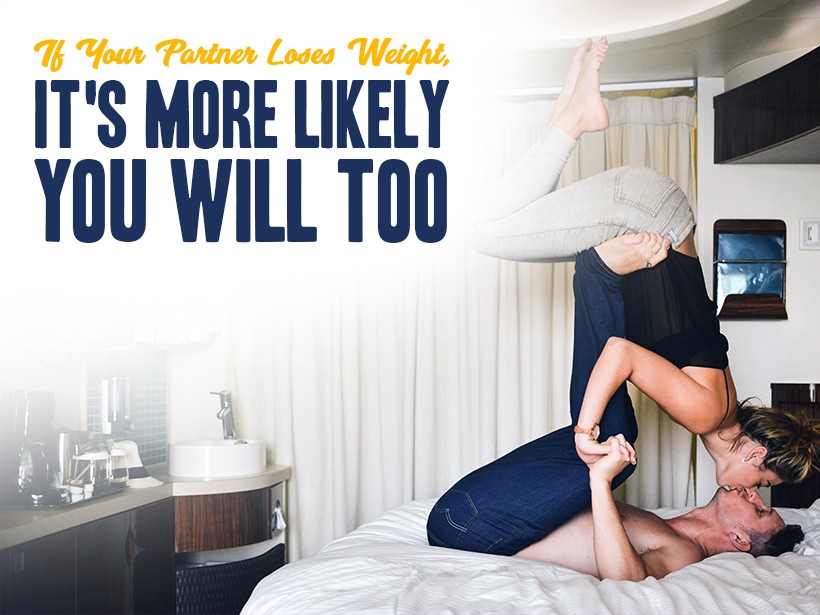As the saying goes, “teamwork makes the dream work”. When it comes to diet and weight loss, joining forces with a partner has a dramatic effect on our ability to stay committed. However, a University of Connecticut study shows that even if they don’t both commit together, having a partner that loses weight can impact the other’s weight loss as well.1
The Ripple Effect
In the UConn study, Amy A. Gorin and her team studied 130 overweight couples in an attempt to examine the interdependent relationship of weight in married couples. Based on previous data published in the The New England Journal of Medicine, a married person is 37% more likely to become obese if their spouse becomes obese after marriage.2
To examine this relationship carefully, Gorin and her team selected the test couples and gave one spouse either 6 months of access to a Weight Watchers management program, including in-person meetings and online tools, or a packet to complete a self-guided weight loss program. Their partner was not provided any tools to aid in weight management.
On their respective programs, many of the subjects actively participating in weight management had success losing weight. The most interesting aspect of the study, though, was that their partners also experienced weight loss – from seemingly having done nothing at all. Of the untreated spouses, an average loss of 3 percent of their body weight was reported when their partners actively participated in the weight management program. This result, as Gorin terms it, was referred to as ‘The Ripple Effect’.
Is Weight Loss Contagious?
If partners that aren’t actively undergoing weight management treatment are also experiencing weight loss, then what’s the correlation?
The most obvious answer is that when two people live in a home and share meals together and one commits himself or herself to healthy eating habits, the effects are bound to have an impact on the other. Choosing low-calorie meals with a high nutritional value that are shared essentially forces one partner to get on board to a certain extent. More so, habits can often make an impression and change behaviors in the other partner. For example, if one spouse begins counting calories and tracking the foods they eat, the other is more likely to develop these same habits and follow suit.
There’s a lot of talk in diet and nutrition communities about frustrations with attempting to make healthy changes while the other partner isn’t on board. Having to resist temptations by having sweets in the house and watching a spouse indulge in food when the other cannot, for example, is a reasonable cause to have moments of feeling defeated. However, taking a minute to reflect on how one’s shift towards healthy eating may impact the other can help to ease these frustrations and focus more on knowing that, despite the temptations, you may be making a greater impact on your spouse’s health and wellbeing by taking that first step.
NUTRITIONAL DISCLAIMER
The content on this website should not be taken as medical advice and you should ALWAYS consult with your doctor before starting any diet or exercise program. We provide nutritional data for our recipes as a courtesy to our readers. We use Total Keto Diet app software to calculate the nutrition and we remove fiber and sugar alcohols, like erythritol, from the total carbohydrate count to get to the net carb count, as they do not affect your blood glucose levels. You should independently calculate nutritional information on your own and not rely on our data. The website or content herein is not intended to cure, prevent, diagnose or treat any disease. This website shall not be liable for adverse reactions or any other outcome resulting from the use of recipes or recommendations on the Website or actions you take as a result. Any action you take is strictly at your own risk.
- Scottish Government: ‘Obesity Will Be One Of The Great Public Health Challenges Of Our Time’ - September 5, 2018
- Virta Health’s Use of Telemedicine to Treat Diabetics with Keto - September 3, 2018
- New MyProtein Nutrition Bar Disrupts Nutrition Standards - May 24, 2018




